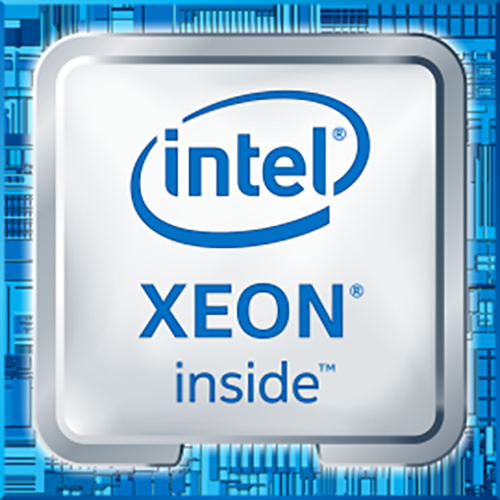

Intel® Xeon® E Processors deliver essential performance and advanced security technologies for entry server solutions, professional workstations, and secure cloud services. Available with integrated Intel® UHD Graphics .
Introducing the 3rd Gen Intel® Xeon® Scalable Processors, a balanced architecture that delivers built-in AI acceleration and advanced security capabilities, which allow you to place your workloads securely where they perform best-from edge to cloud.
The 3rd Gen Intel® Xeon® Scalable Processor benefits from decades of innovation for the most common workload requirements, supported by close partnerships and deep integrations with the world’s software leaders and solution providers. 3rd Gen Intel® Xeon® Scalable Processors are optimized for many workload types and performance levels, all with the consistent, open, Intel architecture you know and trust.
Key Specs - Comms Express Part No INTBX80684E2146G:
Model
Intel® Xeon® E-2146G Processor
Product Collection
Intel® Xeon® E Processor
Vertical Segment
Server
Processor Number
E-2146G
CPU Specifications
Processor Base Frequency
3.5 GHz
Max Turbo Frequency
4.5 GHz
Cache
12 MB Intel® Smart Cache
Intel® Turbo Boost Technology 2.0 Frequency
4.5 GHz
TDP
(Thermal Design Power)
80 W
Memory Specifications
Max Memory Size
(dependent on memory type)
128 GB
Memory Types
DDR4-2666
Max Memory Bandwidth
41.6 GB/s
Processor Graphics
Intel® UHD Graphics P630
Graphics Video Max Memory
128 GB
Graphics Output
eDP/DP/HDMI/DVI
Package Specifications
TJUNCTION
100°C
TCASE
Expansion Options
PCI Express Configurations
1x16, 2x8, 1x8+2x4
Max # of PCI Express Lanes
16
You can download a full specifications comparison sheet of Intel Xeon E Processors from our "Documentation" section (above):



Intel® Xeon® E Processors deliver essential performance and advanced security technologies for entry server solutions, professional workstations, and secure cloud services. Available with integrated Intel® UHD Graphics .
Introducing the 3rd Gen Intel® Xeon® Scalable Processors, a balanced architecture that delivers built-in AI acceleration and advanced security capabilities, which allow you to place your workloads securely where they perform best-from edge to cloud.
The 3rd Gen Intel® Xeon® Scalable Processor benefits from decades of innovation for the most common workload requirements, supported by close partnerships and deep integrations with the world’s software leaders and solution providers. 3rd Gen Intel® Xeon® Scalable Processors are optimized for many workload types and performance levels, all with the consistent, open, Intel architecture you know and trust.
Key Specs - Comms Express Part No INTBX80684E2176G:
Model
Intel® Xeon® E-2176G Processor
Product Collection
Intel® Xeon® E Processor
Vertical Segment
Server
Processor Number
E-2176G
CPU Specifications
Processor Base Frequency
3.7 GHz
Max Turbo Frequency
4.7 GHz
Cache
12 MB Intel® Smart Cache
Intel® Turbo Boost Technology 2.0 Frequency
4.7 GHz
TDP
(Thermal Design Power)
80 W
Memory Specifications
Max Memory Size
(dependent on memory type)
128 GB
Memory Types
DDR4-2666
Max Memory Bandwidth
41.6 GB/s
Processor Graphics
Intel® UHD Graphics P630
Graphics Video Max Memory
128 GB
Graphics Output
eDP/DP/HDMI/DVI
Package Specifications
TJUNCTION
100°C
TCASE
Expansion Options
PCI Express Configurations
1x16, 2x8, 1x8+2x4
Max # of PCI Express Lanes
16
You can download a full specifications comparison sheet of Intel Xeon E Processors from our "Documentation" section (above):



Intel® Xeon® E Processors deliver essential performance and advanced security technologies for entry server solutions, professional workstations, and secure cloud services. Available with integrated Intel® UHD Graphics .
Introducing the 3rd Gen Intel® Xeon® Scalable Processors, a balanced architecture that delivers built-in AI acceleration and advanced security capabilities, which allow you to place your workloads securely where they perform best-from edge to cloud.
The 3rd Gen Intel® Xeon® Scalable Processor benefits from decades of innovation for the most common workload requirements, supported by close partnerships and deep integrations with the world’s software leaders and solution providers. 3rd Gen Intel® Xeon® Scalable Processors are optimized for many workload types and performance levels, all with the consistent, open, Intel architecture you know and trust.
Key Specs - Comms Express Part No INTCM8068403379918:
Model
Intel® Xeon® E-2186G Processor
Product Collection
Intel® Xeon® E Processor
Vertical Segment
Server
Processor Number
E-2186G
CPU Specifications
Processor Base Frequency
3.8 GHz
Max Turbo Frequency
4.7 GHz
Cache
12 MB Intel® Smart Cache
Intel® Turbo Boost Technology 2.0 Frequency
4.7 GHz
TDP
(Thermal Design Power)
95 W
Memory Specifications
Max Memory Size
(dependent on memory type)
128 GB
Memory Types
DDR4-2666
Max Memory Bandwidth
41.6 GB/s
Processor Graphics
Intel® UHD Graphics P630
Graphics Video Max Memory
128 GB
Graphics Output
eDP/DP/HDMI/DVI
Package Specifications
TJUNCTION
100°C
TCASE
Expansion Options
PCI Express Configurations
1x16, 2x8, 1x8+2x4
Max # of PCI Express Lanes
16
You can download a full specifications comparison sheet of Intel Xeon E Processors from our "Documentation" section (above):



Intel® Xeon® E Processors deliver essential performance and advanced security technologies for entry server solutions, professional workstations, and secure cloud services. Available with integrated Intel® UHD Graphics .
Introducing the 3rd Gen Intel® Xeon® Scalable Processors, a balanced architecture that delivers built-in AI acceleration and advanced security capabilities, which allow you to place your workloads securely where they perform best-from edge to cloud.
The 3rd Gen Intel® Xeon® Scalable Processor benefits from decades of innovation for the most common workload requirements, supported by close partnerships and deep integrations with the world’s software leaders and solution providers. 3rd Gen Intel® Xeon® Scalable Processors are optimized for many workload types and performance levels, all with the consistent, open, Intel architecture you know and trust.
Key Specs - Comms Express Part No INTBX80684E2124:
Model
Intel® Xeon® E-2124 Processor
Product Collection
Intel® Xeon® E Processor
Vertical Segment
Server
Processor Number
E-2124
CPU Specifications
Processor Base Frequency
3.3 GHz
Max Turbo Frequency
4.3 GHz
Cache
8 MB Intel® Smart Cache
Intel® Turbo Boost Technology 2.0 Frequency
4.3 GHz
TDP
(Thermal Design Power)
71 W
Memory Specifications
Max Memory Size
(dependent on memory type)
128 GB
Memory Types
DDR4-2666
Max Memory Bandwidth
41.6 GB/s
Processor Graphics
Graphics Video Max Memory
Graphics Output
Package Specifications
TJUNCTION
100°C
TCASE
Expansion Options
PCI Express Configurations
1x16, 2x8, 1x8+2x4
Max # of PCI Express Lanes
16
You can download a full specifications comparison sheet of Intel Xeon E Processors from our "Documentation" section (above):



Intel® Xeon® E Processors deliver essential performance and advanced security technologies for entry server solutions, professional workstations, and secure cloud services. Available with integrated Intel® UHD Graphics .
Introducing the 3rd Gen Intel® Xeon® Scalable Processors, a balanced architecture that delivers built-in AI acceleration and advanced security capabilities, which allow you to place your workloads securely where they perform best-from edge to cloud.
The 3rd Gen Intel® Xeon® Scalable Processor benefits from decades of innovation for the most common workload requirements, supported by close partnerships and deep integrations with the world’s software leaders and solution providers. 3rd Gen Intel® Xeon® Scalable Processors are optimized for many workload types and performance levels, all with the consistent, open, Intel architecture you know and trust.
Key Specs - Comms Express Part No INTBX80684E2236:
Model
Intel® Xeon® E-2236 Processor
Product Collection
Intel® Xeon® E Processor
Vertical Segment
Server
Processor Number
E-2236
CPU Specifications
Processor Base Frequency
3.4 GHz
Max Turbo Frequency
4.8 GHz
Cache
12 MB Intel® Smart Cache
Intel® Turbo Boost Technology 2.0 Frequency
4.8 GHz
TDP
(Thermal Design Power)
80 W
Memory Specifications
Max Memory Size
(dependent on memory type)
128 GB
Memory Types
DDR4-2666
Max Memory Bandwidth
Processor Graphics
Graphics Video Max Memory
Graphics Output
N/A
Package Specifications
TJUNCTION
100°C
TCASE
73°C
Expansion Options
PCI Express Configurations
1x16, 2x8, 1x8+2x4
Max # of PCI Express Lanes
16
You can download a full specifications comparison sheet of Intel Xeon E Processors from our "Documentation" section (above):



Intel® Xeon® E Processors deliver essential performance and advanced security technologies for entry server solutions, professional workstations, and secure cloud services. Available with integrated Intel® UHD Graphics .
Introducing the 3rd Gen Intel® Xeon® Scalable Processors, a balanced architecture that delivers built-in AI acceleration and advanced security capabilities, which allow you to place your workloads securely where they perform best-from edge to cloud.
The 3rd Gen Intel® Xeon® Scalable Processor benefits from decades of innovation for the most common workload requirements, supported by close partnerships and deep integrations with the world’s software leaders and solution providers. 3rd Gen Intel® Xeon® Scalable Processors are optimized for many workload types and performance levels, all with the consistent, open, Intel architecture you know and trust.
Key Specs - Comms Express Part No INTCM8068404225303:
Model
Intel® Xeon® E-2278G Processor
Product Collection
Intel® Xeon® E Processor
Vertical Segment
Server
Processor Number
E-2278G
CPU Specifications
Processor Base Frequency
3.4 GHz
Max Turbo Frequency
5.0 GHz
Cache
16 MB Intel® Smart Cache
Intel® Turbo Boost Technology 2.0 Frequency
5.0 GHz
TDP
(Thermal Design Power)
80 W
Memory Specifications
Max Memory Size
(dependent on memory type)
128 GB
Memory Types
DDR4-2666
Max Memory Bandwidth
Processor Graphics
Intel® UHD Graphics P630
Graphics Video Max Memory
128 GB
Graphics Output
Package Specifications
TJUNCTION
100°C
TCASE
73°C
Expansion Options
PCI Express Configurations
1x16, 2x8, 1x8+2x4
Max # of PCI Express Lanes
16
You can download a full specifications comparison sheet of Intel Xeon E Processors from our "Documentation" section (above):



Intel® Xeon® E Processors deliver essential performance and advanced security technologies for entry server solutions, professional workstations, and secure cloud services. Available with integrated Intel® UHD Graphics .
Introducing the 3rd Gen Intel® Xeon® Scalable Processors, a balanced architecture that delivers built-in AI acceleration and advanced security capabilities, which allow you to place your workloads securely where they perform best-from edge to cloud.
The 3rd Gen Intel® Xeon® Scalable Processor benefits from decades of innovation for the most common workload requirements, supported by close partnerships and deep integrations with the world’s software leaders and solution providers. 3rd Gen Intel® Xeon® Scalable Processors are optimized for many workload types and performance levels, all with the consistent, open, Intel architecture you know and trust.
Key Specs - Comms Express Part No INTBX80684E2124G:
Model
Intel® Xeon® E-2124G Processor
Product Collection
Intel® Xeon® E Processor
Vertical Segment
Server
Processor Number
E-2124G
CPU Specifications
Processor Base Frequency
3.4 GHz
Max Turbo Frequency
4.5 GHz
Cache
8 MB Intel® Smart Cache
Intel® Turbo Boost Technology 2.0 Frequency
4.5 GHz
TDP
(Thermal Design Power)
71 W
Memory Specifications
Max Memory Size
(dependent on memory type)
128 GB
Memory Types
DDR4-2666
Max Memory Bandwidth
41.6 GB/s
Processor Graphics
Intel® UHD Graphics P630
Graphics Video Max Memory
128 GB
Graphics Output
eDP/DP/HDMI/DVI
Package Specifications
TJUNCTION
100°C
TCASE
Expansion Options
PCI Express Configurations
1x16, 2x8, 1x8+2x4
Max # of PCI Express Lanes
16
You can download a full specifications comparison sheet of Intel Xeon E Processors from our "Documentation" section (above):

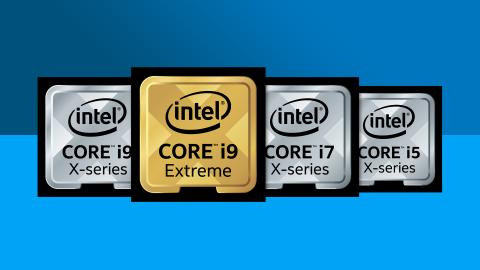
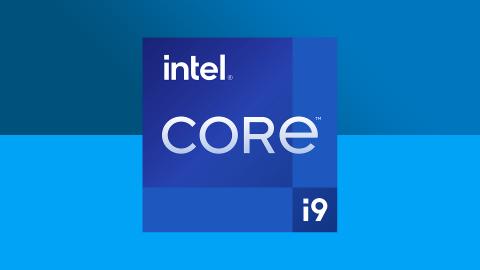
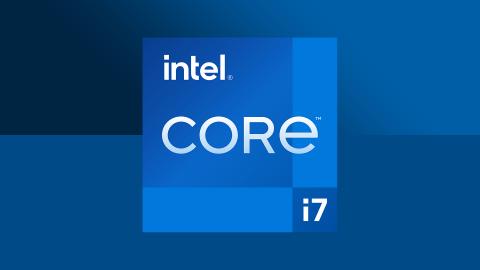
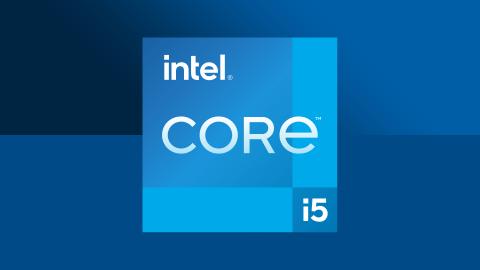
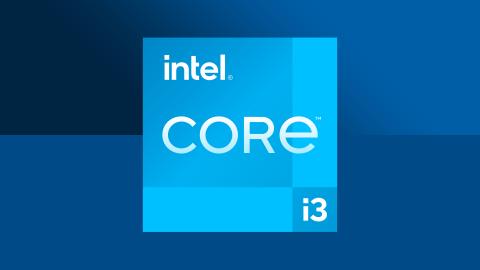
- Review: The 10 Best Wireless Access Points
- Review: The Top 10 Best Ethernet Cables
- What Is An Ethernet Cable And What Does It Do?
- 10 Best CCTV Security IP Cameras For Home & Business
- Review: Best Powerline Adapters In The UK
- Celebrating 20 Years Of Comms Express!
- The Top 10 DrayTek Wireless Access Points
- Best Selling APC Products At Comms Express
- Review: Top 5 Best Performing APC Uninterruptible Power Supply Units (UPS)
- Review: Top 10 Best PDU’s













